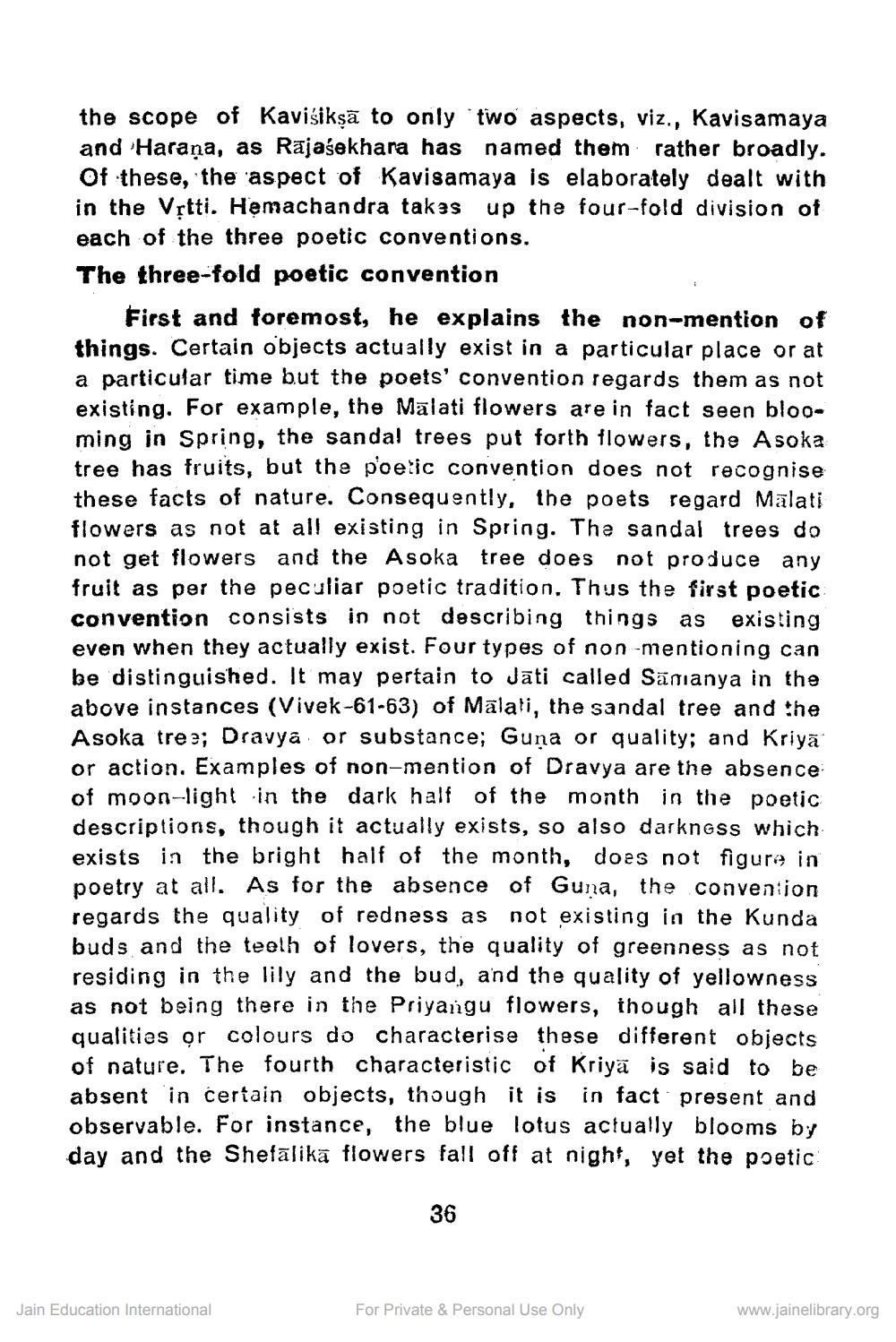________________
the scope of Kaviśikṣā to only two aspects, viz., Kavisamaya and Haraņa, as Rajasekhara has named them rather broadly. Of these, the aspect of Kavisamaya is elaborately dealt with in the Vștti. Hemachandra takss up the four-fold division of each of the three poetic conventions. The three-fold poetic convention
First and foremost, he explains the non-mention of things. Certain objects actually exist in a particular place or at a particular time but the poets' convention regards them as not existing. For example, the Mālati flowers are in fact seen blooming in Spring, the sandal trees put forth flowers, the Asoka tree has fruits, but the poetic convention does not recognise these facts of nature. Consequently, the poets regard Mālati flowers as not at all existing in Spring. The sandal trees do not get flowers and the Asoka tree does not produce any fruit as per the peculiar poetic tradition. Thus the first poetic convention consists in not describing things as existing even when they actually exist. Four types of non-mentioning can be distinguished. It may pertain to Jāti called Sānianya in the above instances (Vivek-61-63) of Mālali, the sandal tree and the Asoka trez; Dravya or substance; Guņa or quality; and Kriya or action. Examples of non-mention of Dravya are the ab of moon-light in the dark half of the month in the poetic descriptions, though it actually exists, so also darkness which exists in the bright haif of the month, does not figure in poetry at all. As for the absence of Guna, the convention regards the quality of redness as not existing in the Kunda buds and the teeth of lovers, the quality of greenness as not residing in the lily and the bud, and the quality of yellowness as not being there in the Priyangu flowers, though all these qualities or colours do characterise these different objects of nature. The fourth characteristic of Kriya is said to be absent in certain objects, though it is in fact present and observable. For instance, the blue lotus actually blooms by day and the Shefālikā flowers fall off at night, yet the poetic
36
Jain Education International
For Private & Personal Use Only
www.jainelibrary.org




